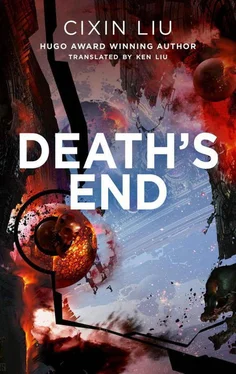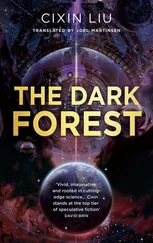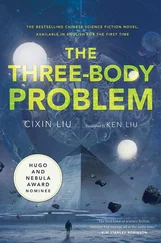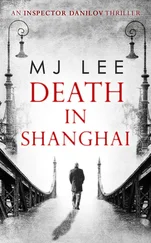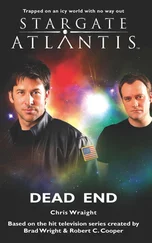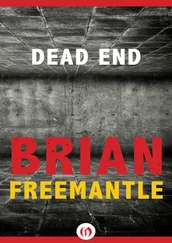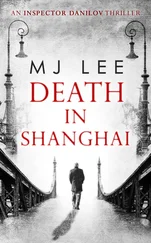This time, Phrantzes didn’t send anyone to follow Helena. He watched as she made her way through the soldiers thronging the top of the walls. Among the dirt-and-blood-encrusted armor of the soldiers, her bright cloak stood out. But the exhausted soldiers paid her no attention. She descended from the walls, and, without making an obvious effort to throw off anyone who might be following her, headed for the Blachernae quarter.
Night fell.
—————
Constantine stared at the drying water stain on the floor, a metaphor for his vanishing hope.
The stain had been left by a dozen spies. Last Monday, dressed in the uniforms and turbans of the Ottoman forces, they had sneaked through the blockade in a tiny sailboat to welcome the European fleet that was supposed to be on its way to relieve the siege of Constantinople. But all they saw was the empty Aegean Sea, without even a shadow of the rumored fleet. The disappointed spies had carried out their duty and made their way back through the blockade to bring the emperor the terrible news.
Constantine finally understood that the promised aid from Europe was nothing more than a dream. The kings of Christendom had coldly decided to abandon Constantinople to the infidels, after this holy city had withstood the tides of Mohammedans for so many centuries.
Anxious cries from outside filled his ears. A guard came and reported a lunar eclipse: a terrible portent. It was said that Constantinople would never fall as long as the moon shone.
Through the narrow slit of the window, Constantine observed the moon disappearing in shadow, as though entering a grave in the sky. He knew, without knowing exactly why, that Helena would never return, and he would never see the head of his enemy.
A day passed; then a night. There was no news of Helena.
—————
Phrantzes and his men stopped in front of the minaret in the Blachernae quarter and dismounted from their horses.
Everyone was stunned.
Under the cold, white light of the newly risen moon, the minaret appeared complete: Its sharp tip pointed into the starry sky.
The spy swore that the last time he had been here, the minaret’s top was missing. Several other officers and soldiers, familiar with the area, corroborated his testimony.
But Phrantzes gazed at the spy in cold fury. No matter how many witnesses testified to the contrary, he must certainly be lying: The complete minaret was ironclad proof. However, Phrantzes had no time to mete out punishment; now that the city was about to fall, no one would escape the punishment of the Conqueror.
A soldier off to the side knew that the missing top of the minaret hadn’t been destroyed by a cannonball. He had found the top half of the minaret missing one morning two weeks ago. There had been no cannon fire the previous night, and he had recalled that there was no debris on the ground around the minaret. The two soldiers who had been with him that morning had both died in battle. However, seeing the look on Phrantzes’s face, he decided to keep quiet about it.
Phrantzes and his men entered the bottom of the minaret. Even the spy who Phrantzes was sure had lied came along. They saw remnants of the corpses of plague victims that had been scattered around the ruin by feral dogs, but there were no signs of anyone living.
They ascended the stairs. In the flickering torchlight on the second story, they saw Helena curled under a window. She appeared to be asleep, but her half-closed eyes reflected the light from the torches. Her clothes were torn and dirty and her hair unkempt; a few bloody scratch marks crossed her face, perhaps self-inflicted.
Phrantzes looked around. This was the top of the minaret, an empty, cone-shaped space. He noted the thick layer of dust covering everything, but there were few marks in the dust, as though Helena, like them, had arrived only recently.
She awoke, and, scrabbling at the walls with her hands, stood up. Moonlight falling through the window turned the messy hair around her face into a silvery halo. She stared, wide-eyed, and seemed to return to the present only with effort. But she then closed her eyes again, as though trying to linger inside a dream.
“What are you doing here?!” Phrantzes shouted at her.
“I… I can’t go there .”
“Where?”
With her eyes still half closed, as if to savor her memory like a child holding on to a favorite toy that she would not give up, she answered, “There’s so much space there. So comfortable…” She opened her eyes and looked around in terror. “But here, it’s like the inside of a coffin, whether I’m inside the minaret or outside. I have to go there !”
“What about your mission?”
“Wait!” Helena crossed herself. “Wait!”
Phrantzes pointed outside the window. “It’s too late for waiting.”
Waves of noise cascaded over them. If one listened carefully, two sources could be distinguished.
One source was from outside the city. Mehmed II had decided to launch the final assault on Constantinople tomorrow. At this moment, the young sultan was riding through the Ottoman camps, promising his soldiers that all he wanted was Constantinople itself—the treasure and women of Constantinople would belong to his army, and after the fall of the city, the soldiers would have three days to loot everything they desired. All the soldiers cheered at the sultan’s promise, and the sound of trumpets and drums added to their glee. This joyous din, mixed with the smoke and sparks rising from fires in front of the camps, covered Constantinople like an oppressive tide of death.
The noise coming from inside Constantinople, on the other hand, was lugubrious and subdued. All the citizens had paraded through the city and gathered at Hagia Sophia to attend a final Mass. This was a scene that had never occurred and would never occur again in the history of Christianity: Accompanied by solemn hymns, under the light of dim candles, the Byzantine emperor, the Patriarch of Constantinople, Orthodox Christians of the East and Catholics from Italy, soldiers in full armor, merchants and sailors from Venice and Genoa, and multitudes of ordinary citizens all gathered in front of God to prepare for the final battle of their lives.
Phrantzes knew that his plan had failed. Perhaps Helena was nothing but a skilled fraud, and she possessed no magic at all—he preferred that possibility by far. But there was another, more dangerous alternative: She did possess magic, and she had already gone to Mehmed II, who had given her a new mission.
After all, what could the Byzantine Empire, teetering on the brink of ruin, offer her? The emperor’s promise to make her into a saint was unlikely to be fulfilled: Neither Constantinople nor Rome was likely to declare a witch and a whore a saint. Indeed, she had likely returned with two new targets in mind: Constantine, and himself.
Hadn’t Orban, the Hungarian engineer, already been an example of this? He had come to Constantine first with plans for his giant cannons, but the emperor had no money to pay his salary, let alone finance the construction of such monstrous engines. He had then gone to Mehmed II, and the daily bombardments had served as a constant reminder of his betrayal.
Phrantzes looked over at the spy, who immediately unsheathed his sword and stabbed at Helena’s chest. The sword pierced her body and got stuck in a crack in the wall behind her. The spy tried to pull the sword out, but it wouldn’t budge. Helena rested her hands on the sword’s hilt. The spy let go of the weapon, unwilling to touch her hands.
Phrantzes left with his men.
Throughout her execution, Helena never made any noise. Gradually, her head drooped, and the silvery halo formed by her tresses fell away from the beam of moonlight and faded into darkness. The moon’s glow lit a small patch of ground in the dark interior of the minaret, where a stream of blood flowed like a slender, black snake.
Читать дальше
